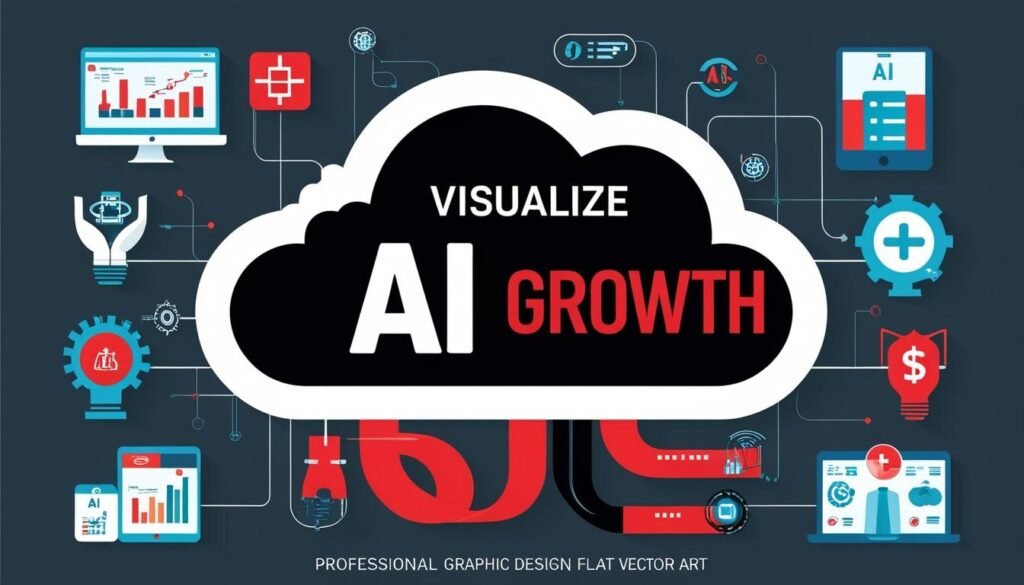The cloud AI market is set for substantial growth, driven by its increasing application across various industries, with AI-as-a-Service leading the way.
The cloud AI market is poised for significant expansion, projected to grow from USD 80.30 billion in 2024 to USD 327.15 billion by 2029, representing a compounded annual growth rate (CAGR) of 32.4%. This growth trajectory highlights the increasing application of artificial intelligence within various industries, driving process improvements and operational efficiencies.
A report from ResearchAndMarkets.com sheds light on the dynamics shaping this market, indicating that key players include prominent technology companies such as Google, IBM, AWS, Microsoft, Oracle, and Nvidia, among others. These organisations are at the forefront of providing cloud AI solutions that enhance business intelligence across sectors including manufacturing, healthcare, finance, and retail.
In healthcare, cloud AI is being integrated to forecast health trends and swiftly evaluate medical data. Hospitals are utilising this technology to support physicians in making informed decisions for patient care. This application of cloud AI underscores its pivotal role in enhancing operational efficiency and providing real-time insights.
The report particularly emphasises the rapid growth potential of AI-as-a-Service (AIaaS), which allows businesses to leverage advanced AI tools without substantial upfront investments in IT infrastructure. This segment offers scalability and flexibility, making it accessible for companies of varying sizes. AIaaS facilitates the implementation of tools that enable data-driven decision-making, essential for navigating the complexities of market trends and consumer demands.
The banking, financial services, and insurance (BFSI) sectors account for a major share of the cloud AI market, using it to bolster security measures, enhance customer service, and improve operational efficiencies. Financial institutions are leveraging cloud AI to conduct real-time data analysis, crucial for fraud detection and risk management. Furthermore, chatbots powered by AI are streamlining customer services, meeting the evolving demands for digital solutions.
In the insurance field, cloud AI simplifies claims processing and risk assessment, thereby accelerating workflows and enhancing the precision of decision-making capabilities. The flexibility of cloud AI enables companies to adjust resources in response to market fluctuations without the burden of monumental IT investments.
Additionally, the operations and supply chain segment is projected to see high growth rates, driven by the need for real-time data analytics. AI systems enhance logistics, inventory management, and demand forecasting. Businesses are increasingly adopting AI to automate routine tasks such as order processing, enabling staff to concentrate on critical decision-making processes. The integration of Internet of Things (IoT) devices is also gaining traction, providing enhanced visibility across supply chains and promoting efficiencies.
The cloud AI market is influenced by several factors, including advancements in intelligent automation, rising adoption of cloud-based solutions, and the growing significance of data-driven practices. However, challenges such as concerns over data privacy and security, alongside the complexities involved in AI integration, continue to pose threats to this marketplace.
A noteworthy aspect of the report is its identification of various case studies demonstrating practical AI implementations. For instance, Siemens has connected frontline workers and engineers using Azure AI for real-time problem-solving, while Edgar Finance has enhanced the collection and analysis of investment information with IBM’s assistance. Additionally, Salesforce AI is being employed to automate the triage of support requests, indicating the versatile applications of cloud AI across different business functions.
As the market continues to evolve, the cloud AI landscape presents an array of opportunities, particularly for small and medium enterprises (SMEs) and through synergistic integration with emerging technologies. The comprehensive assessment provided in the report offers critical insights into the strategies, market dynamics, and competitive landscape that will shape the future of AI automation across industries worldwide.
Source: Noah Wire Services
- https://www.mordorintelligence.com/industry-reports/cloud-ai-market – Corroborates the growth trajectory of the cloud AI market, projected to reach USD 67.56 billion in 2024 and USD 274.54 billion by 2029, with a CAGR of 32.37%, and highlights key players such as Google, IBM, Amazon, Microsoft, and others.
- https://market.us/report/cloud-ai-market/ – Supports the rapid growth and innovation in the cloud AI market, driven by key players like Google, Microsoft, IBM, and others through strategic acquisitions and new product launches.
- https://www.mordorintelligence.com/industry-reports/cloud-ai-market – Details the integration of cloud AI in healthcare to forecast health trends, evaluate medical data, and support physicians in making informed decisions.
- https://market.us/report/cloud-ai-market/ – Explains the growth potential of AI-as-a-Service (AIaaS), which allows businesses to leverage advanced AI tools without substantial upfront IT investments, enhancing scalability and flexibility.
- https://www.mordorintelligence.com/industry-reports/cloud-ai-market – Highlights the significant role of cloud AI in the BFSI sector for bolstering security measures, enhancing customer service, and improving operational efficiencies.
- https://market.us/report/cloud-ai-market/ – Discusses the use of cloud AI in insurance for simplifying claims processing and risk assessment, and in operations and supply chain for real-time data analytics and automation.
- https://www.mordorintelligence.com/industry-reports/cloud-ai-market – Mentions the influence of factors such as advancements in intelligent automation, rising adoption of cloud-based solutions, and the growing significance of data-driven practices on the cloud AI market.
- https://market.us/report/cloud-ai-market/ – Identifies challenges such as concerns over data privacy and security, and the complexities involved in AI integration, posing threats to the cloud AI marketplace.
- https://www.crn.com/news/cloud/2024/top-8-cloud-platform-services-ranked-azure-aws-google-lead-gartner-magic-quadrant – Lists key players in the cloud AI market, including Amazon Web Services, Google, Microsoft, Oracle, IBM, and others, as per Gartner’s Magic Quadrant for Strategic Cloud Platform Services.
- https://market.us/report/cloud-ai-market/ – Provides examples of practical AI implementations, such as Siemens using Azure AI for real-time problem-solving and Edgar Finance enhancing investment information analysis with IBM’s assistance.
- https://www.mordorintelligence.com/industry-reports/cloud-ai-market – Outlines the opportunities for small and medium enterprises (SMEs) and the synergistic integration with emerging technologies in the evolving cloud AI landscape.


